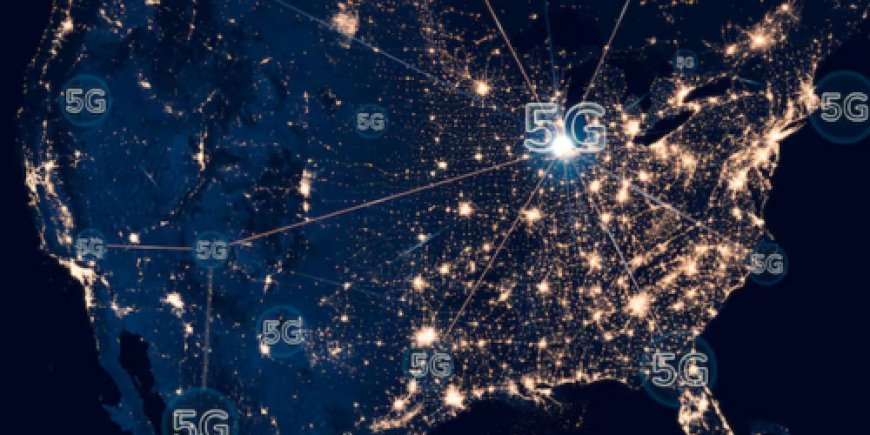The Ultimate Checklist for Finding the Right Broadband Provider

In today’s digital world, a reliable internet connection is a necessity, not a luxury. Whether you work remotely, stream your favorite shows, or game online, the right broadband provider makes all the difference. But with so many options, how do you choose? Don’t worry—I’ve got you covered. This checklist will help you navigate the maze of choices and find the best provider for your needs.
1. Understand Your Internet Needs
Before jumping into plans and providers, assess your internet usage. Are you a casual user who browses the web and checks emails? Do you stream in 4K, game online, or have multiple connected devices? Your usage will determine the speed and type of connection you need.
For instance, a household of two people browsing social media needs far less speed than a family streaming Netflix on multiple devices. Identifying your needs first prevents you from overpaying or ending up with slow speeds.
2. Compare Internet Plans

Once you know your requirements, it’s time to compare internet plans. Providers offer various options based on speed, data limits, and pricing. Some plans come with unlimited data, while others may have restrictions that slow your connection after a certain threshold.
Speed is crucial. If you frequently stream, game, or attend video calls, aim for a plan with at least 100 Mbps. For larger households, consider even higher speeds to prevent network congestion.
3. Check the Type of Connection Available
Not all broadband is created equal. Different types of connections impact speed and reliability:
-
Fiber Optic: The fastest and most reliable but not available everywhere.
-
Cable: Offers high speeds but can slow down during peak hours.
-
DSL: More affordable but slower than fiber or cable.
-
Satellite: Works in remote areas but tends to be slow and expensive.
-
5G or Fixed Wireless: Good alternative if wired options are limited.
Research what’s available in your area before deciding.
4. Read Customer Reviews
A provider may promise lightning-fast speeds, but does it deliver? Customer reviews reveal real-world performance. Look for feedback on:
-
Speed consistency
-
Customer service
-
Downtime issues
-
Hidden fees
Websites like Trustpilot, Google Reviews, and Reddit discussions provide unfiltered opinions from actual users.
5. Assess Customer Support Quality
At some point, you’ll need tech support. Whether it’s troubleshooting an outage or upgrading your plan, responsive customer service is a must. Check:
-
Availability: 24/7 support is ideal.
-
Contact Options: Live chat, phone, and email should be available.
-
Response Time: Fast and efficient problem-solving is key.
6. Look for Hidden Fees and Contracts
The advertised price isn’t always the final cost. Watch out for:
-
Installation fees
-
Equipment rental charges
-
Data overage fees
-
Early termination penalties
Some providers lock you into long-term contracts with hefty cancellation fees. If flexibility is important, opt for a no-contract plan.
7. Test the Connection (If Possible)
If you have a friend or neighbor using a provider you’re considering, ask about their experience. Some companies even offer trial periods, allowing you to test their service risk-free.
8. Evaluate Bundled Offers
Many ISPs bundle internet with TV, phone, or mobile services. Sometimes, these deals save money, but only if you actually use the extras. Be sure to compare standalone pricing before committing.
9. Check for Data Caps
Unlimited internet is becoming standard, but some plans still have data limits. If you stream, game, or work from home, a data cap can be frustrating. Choose a plan that offers enough data for your needs without slowdowns or extra charges.
10. Consider Local vs. National Providers
Big-name providers dominate the market, offering widespread coverage and extensive infrastructure. However, smaller, local ISPs can often provide better deals, more personalized customer service, and a closer connection to the community. These providers may also be more flexible with pricing and contract options, catering to the specific needs of local customers. Research both national and local options thoroughly to find the best fit for your internet usage, budget, and service expectations.
11. Watch Out for Promotional Pricing Tricks
Introductory prices can be tempting, but they often increase after a few months. Before signing up, ask:
-
How long the promotional price lasts
-
What the regular rate will be afterward
-
If price increases are gradual or sudden
12. Explore Dodo Internet and Similar Providers
![]()
One provider worth considering is dodo internet. It offers competitive pricing, flexible plans, and a reputation for solid customer service. If you’re looking for an affordable yet reliable option, it’s worth checking out their offerings.
Final Thoughts
Finding the right broadband provider doesn’t have to be stressful. By following this checklist, you can make an informed choice that suits your budget and needs. The key is to research, compare, and never rush into a decision. A reliable connection can improve your work, entertainment, and overall productivity. Your perfect internet provider is out there—happy hunting!
Remember, the internet is an essential part of modern life. Whether you're working from home, keeping in touch with loved ones, or enjoying online entertainment, choosing the right provider ensures you stay connected without frustration.
What's Your Reaction?



























































